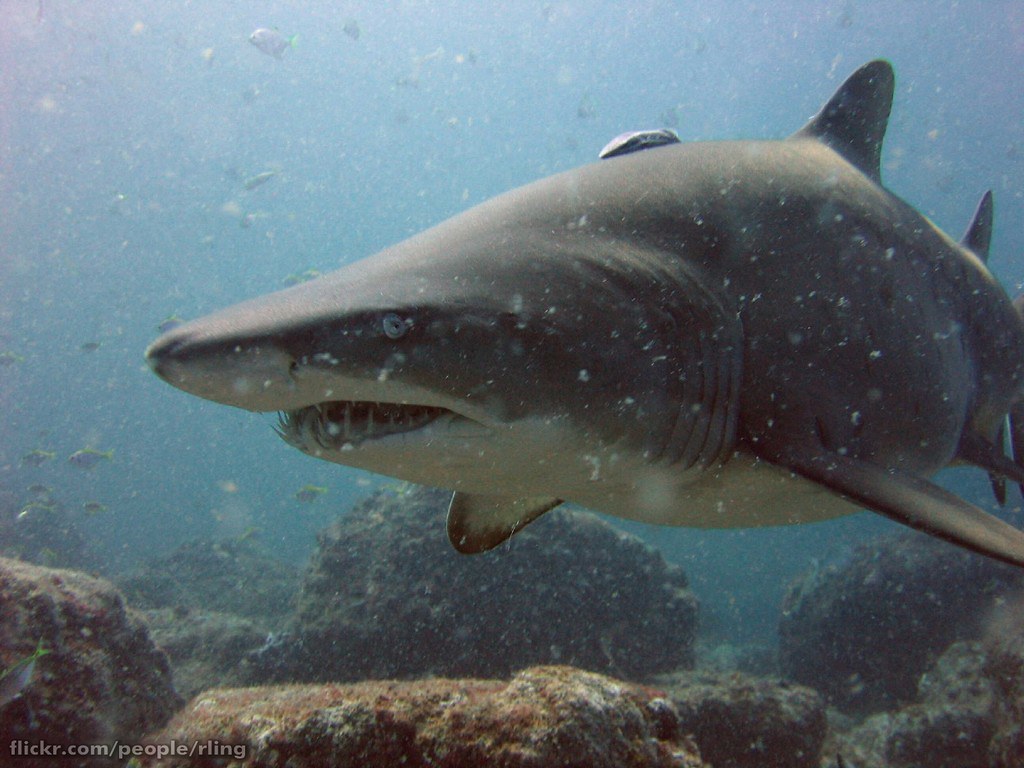Do sharks breathe air? When you think of sharks breathing air, the first thought that strikes your mind is that sharks will tend to swim to the upper surface of the ocean just to breathe air. The mystery of giant monsters – their beauty, power and complexities have made them masters of their own domain. Sharks are the important creatures that maintain a balance in the oceanic ecosystem but one thing you may not know about them is that they need oxygen for their survival but how do they get oxygen? Let’s find out what adaptation they acclimatise to breathe.
Do sharks need to breathe atmospheric oxygen?
No! Sharks do not breathe on atmospheric oxygen. As you know sharks are the top predators of the ocean habitat and to stay alive they need oxygen like you respire but not as we do. Sharks do not have lungs to breathe air instead they have gills which extract oxygen from the water and sharks utilise it for their respiratory activity.
How do sharks breathe?
Sharks need oxygen for their survival not air, so their gills help them to extract oxygen from the surrounding water but the concentration of oxygen in water is considerably low as compared to air so they have adapted different mechanisms to harvest oxygen from water as much as they can. Sharks usually have 5 to 7 gills each with single gill slits; the breathing mechanism of sharks is based on the working of their gills, here are the key points enlisted how it works.
- When a shark swims, the water passes over the gills and the small capillaries in the gills allow oxygen to go into the bloodstream.
- After oxygenation, the blood then circulates through the entire body of sharks.
- The blood, after circulation, first enters the pumping machine (heart)and then it flows towards gills where carbon dioxide is released in the surrounding, as the cycle completes, the other cycle begins.
Most sharks get oxygen by flowing water over their gills when they are swimming and moving whereas some sharks hold water in their cheeks and impel it over their gills which also provide them oxygen to breathe when they are resting on the floor of the ocean.
Do sharks have the ability to exhale?
Yes! Sharks exhale carbon dioxide in the surrounding environment, when the water flows over their gills, the oxygen enters into the bloodstream and when the water flows out, the carbon dioxide is released in the atmosphere as a by-product, and this is called a counter – current flow mechanism.
How do sharks breathe when they are on land?
Sharks can only breathe when they are in water and utilise oxygen from water when they move out of the ocean. They have the ability to survive on land for some minutes or hours depending upon the capacity to hold their breath. Although gills provide large surface area for gaseous exchange, sharks are at high risk when they thrive on land because the flaps of gills stick to each other, blocking the passage of gases which may cause a brain disorder (hypoxia) in them.
Can sharks be capable of holding their breath?
Shockingly yes! Sharks can hold their breath when they are in water or on land. As sharks are cold blooded animals so their body temperature fluctuates with the surrounding water, they sometimes keep their body temperature high to keep their bodies warm by holding breath. Sharks hold breath either by closing their mouth or by clinching their gills slits, so when they swim deep in the ocean or on land, they adapt any of the methods to block the entry of water in the gills and thus no exchange of gases takes place.
What happens if the oxygen level declines in the ocean water?
Sharks depend on oxygen rich water to keep themselves alive, declining oxygen level in the ocean water is a threat to the sharks as well as the other sea creatures living underwater. Low levels of oxygen can also reduce the number of species on which sharks feed, if the availability of food declines, sharks may migrate to the other localities.
What does it conclude?
Sharks cannot breathe air; they utilise the oxygen extracted when the water from the ocean flows over their gills and exhale carbon dioxide in the atmosphere. But if the oxygen level decreases, sharks tend to migrate to other areas. Everything about the shark breathing mechanism depicted that they are definitely meant to stay underwater from birth to death!







